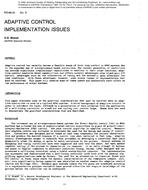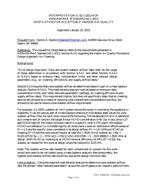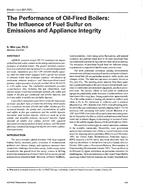Thermal performance of fenestration systems often refers to U-factors or solar heat gain coefficients, but condensation inwindows is an even more direct aspect of thermal performance. Sweat on windows does not require expert interpretation: buildingoccupants will quickly and loudly identify acceptable levels of performance without reference to consensus-based standards orbuilding codes.
Many years ago, the author developed a computer model to predict window condensation and this paper describes the useof that model, as well as tools and techniques for in-field assessment and measurement, to either prevent condensation at the designstage or–in some cases–to address condensation-related problems that developed after construction. Specific examples are usedto show how even high-performance window designs can be compromised as a result of poor installation practice–and whatto do about it.
Citation: Thermal Performance of Exterior Envelopes of Whole Buildings XIII, Conference Papers
Product Details
- Published:
- 2016
- Number of Pages:
- 7
- Units of Measure:
- Dual
- File Size:
- 1 file , 6.4 MB
- Product Code(s):
- D-BldgConf16-52


